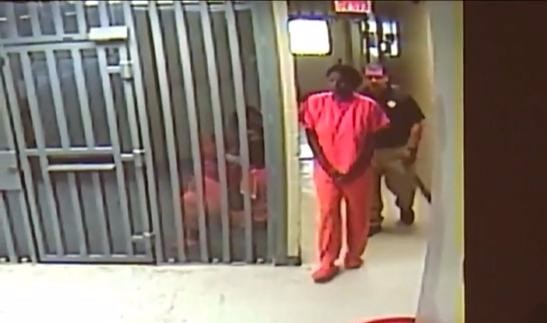
I deleted and wrote this essay over at least twice. It was difficult to write because I was still sorting out my emotions. I didn’t want to vent and write an angry piece or feel compelled to have something encouraging to say. I also wanted to make sure this essay had a clear purpose, given the gravity of the topic. I had to sort through my own anger and frustration and compose something that would possibly enlighten.
Much of my anger around learning about Sandra Bland began the moment I heard the story. My immediate thoughts were, “Damn. Same movie, different actors.” I knew the media would do what they always do, search for information to demonize the victim. Although the “investigation” is ongoing, I suspect it will end as it always does. The victim, Sandra, will receive a trial for her actions while the officer in question will likely never see a courtroom. History dictates that I’m not being presumptuous, but simply using deductive reasoning skills.
Days after the video of Sandra’s arrest was released, I finally watched it. I agree with filmmaker Ava DuVernay in that it appears to be edited. Watching the video was difficult, because I knew I was viewing the last hours of a dead woman. The moment I heard Sandra express frustration, I knew her trail was ending.
Similar to every situation in which a person of color is killed by a police officer, people utilize social media to voice their opinions. The common theme seemed to be “if she wasn’t talking back to the officer, she would still be alive.” Some directly stated this, while others implied it.
Watching the video was difficult, because I knew I was viewing the last hours of a dead woman.
My newsfeeds were filled with different versions of “she died because she did…” I didn’t know if I should respond directly, mentally demote them from whatever social standing they have with me, or just delete them. I chose to do nothing. I decided to step outside my own comfort zone. Typically, I would never look at them the same again.
That response, although very familiar to me, isn’t productive and lacks humility. One of the fastest ways to remain humble is to remind yourself of the strong cognitions you once held that later proved to be feeble. Since I have more than a few of those, it isn’t difficult for me to hop off my high horse and consider an opposing perspective.
“If she wasn’t talking back to the officer, she would still be alive.”
This thinking disturbs me for so many reasons. For one, it’s dangerous. This thinking takes accountability from the offender and puts it onto the victim. This is tantamount to telling a rape victim, “well don’t be such a flirt and you won’t get raped.” A “flirtatious attitude” is not a permission slip for a rapist, no more than a “bad attitude” is a government-backed license to kill. This thinking is synonymous to saying, in both cases, the victim deserved it because of her actions. The moment you respond with, “well they should have,” you are perpetuating a dangerous mentality. On the simplest level, it is counter-productive to societal change and offender accountability.
On a much deeper level, this thinking mirrors the byproducts of slavery tactics outlined in a document called the “Willie Lynch Letter.” The text outlined psychological tactics slave owners used to install generational fear into slaves. The slave owners would often abuse and sometimes kill male and elder slaves in the presence of their families in an effort to display supreme dominance. Such acts were intentionally done in public as a method of cementing power. Their actions would go unchallenged by everyone.
A “flirtatious attitude” is not a permission slip for a rapist, no more than a “bad attitude” is a government-backed license to kill.
As a survival mechanism, parents or elders would inform their children of appropriate behavioral strategies in order to avoid “provoking masters.” They would teach them how to speak to make sure they never upset authority because it could cost them their lives. They would teach them how to obey every inhumane order in an effort to stay alive. Love, mixed with immeasurable fear and trauma, motivated them to teach the children what they needed to do in order to avoid “provoking” slave owners. The psychological trauma of witnessing the strongest members of a family publicly mutilated or killed with no recourse for the murderer was a powerful tool for mental enslavement.
Can you imagine what type of fear is installed into generations of families that watched their fathers, brothers, and other male relatives murdered by authority figures?
The “Willie Lynch Letter” is purported to have been written in 1712, yet in 2015, when I hear about people of color giving their children “the talk” about how to behave in the presence of police officers, I am reminded of this letter.
I’m not saying that police officers are slave owners and the general population is enslaved. But I do wonder about the subconscious thinking that frames statements like “if they (insert all names here) would have just not talked back, then…”
The psychological impact of constantly witnessing men and women killed by taxpayer-funded authority figures with no legal retribution cannot be ignored. It’s impossible to ignore, with so many people insisting that “they should have just…”